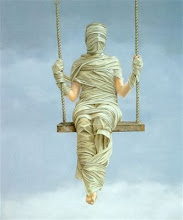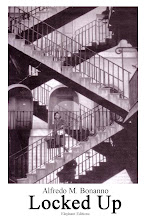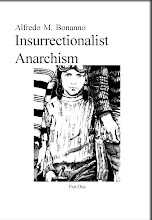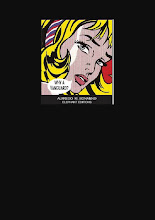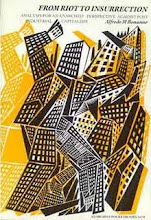Part One
Persecuted by the law, feared by the rich, exalted by the poor, bandits have always been the object of study for sociologists and supplied material for popular ballads.
In practice however, apart frorn the jeremiads of the scholars in the pay of the State, the legalistic harpings of idiotic judges and the exaltation of the ballad singers recapturing popular themes, few studies actually exist on the subject.
Even in Italy, considered the land of the bandits, there are few serious studies capable of considering the problem in the whole of its sociological and historical implications. The old studies of banditry - which we are purposely omitting to mention - can with quite a clear conscience be left to academic criticism. The new ones, worthy sons of such fathers, are - if possible - of less value than the older works. The research that has been carried out on tbe subject is more interesting(1), but it concerns our problem from a quantitive point of view only as it never reaches the level of political and social reflection. The truth is, and it is well to say it right away, that the theme is a burning one for two reasons: first because it cannot be made to remain firmly within an aseptic historical framework and has a strong tendency to revert to present day circumstances, as it concerns a reality that is news rather than history; and secondly, because it requires a political premise and a clear personal standpoint. As we know, these two elements do not exist within the musty walls of the academic world.
When dealing with such a subject one is struck by the contradiction of historical information separated from social information, so denying their interaction and selling the latter off as simply a question of methodology instead of being the essential condition for a clarification of the subject. Banditry is a phenomenon of daily news presented in a social key, according to the reigning contingent power interests. It is up to sociology to demonstrate the relationship that exists between social information and direct confrontation with a view to reinterpreting the historical event in its complexity, and the extention of its development in time.
Only two books attempt to approach this in any way, although their methodological limitations render the conclusions defective. They are two studics by Eric J. Hobsbawm. The first treats primitive rebels(2) and only dedicates a few chapters to the problem of social bandits, the second, more centred on the problem is, although brief, the piece of work that most approaches our way of seeing the subject(3).
It should be pointed out that, as the reader will realise during the course of these pages, Hobsbawm's basic interpretation differs radically from the one we are proposing. It suffices at this point to forewarn that the Marxist perspective so accentuated in Hobsbawm prevents him from approaching fundamental volunterism with sufficient open-mindedness and lack of prejudice. In the last analysis, this is the only valid element of interpretation of the moment of the passage of general banditry (that is defined as social due to its psycological or personal motivations) to specifically political banditry that is socially qualified by
objective group or class motivations.
Lastly, there is the work by Molfese(4), which does not escape the above criticism whichever way one looks at it, deliberating too long over marginal aspects and avoiding an effective penetration into the problem.
What characterises social banditry? Why should it be considered apart from the phenomenon of banditry in general? Where does it take root? In what relationship does it place itself to the social-economic surroundings that produce it? Can it develop in a revolutionary perspective?
These and many others are the questions the historian, sociologist and politician must answer. Not closing themselves within the ivory tower of statistics or the brilliant evasion of the anecdote, but gathering the fundamental links that connect the phenomenon of banditry to real social causes.
The rebel and his myth
The rebel is he who opposes all the reality surrounding him; who refuses to accept it as a necessary rational whole; who says no.
At this point our research concems individual revolt. The rebel is the isolated individual who rises up against the society that is oppressing him and directs his gesture in the way he believes most opportune. Let us clear the road of a tendencious rightwing interpretation of what we are saying right away. Reactionary and bourgeois individualism is a bistorical phenomenon that can be easily identified and which has rightly been linked by its supporters to a genetic and biological matrix, with the racial theory becoming its corollary. Revolutionary and proletarian individualism is linked to an historical interpretation of man as an historical phenomenon emerging from a precise situation of class contrast with a precise acquiring of consciousness. The debate between revolutionary individualism and communism would have no reason to exist if one had the calm and honesty to recognise that it it is not a question of quality but one of quantity. We shall explain further on.
Revolutionary individualism according to the pure tradition in this term, i.e. the anarchist one, is a practical concept based on the claim that every individual human entity has the faculty to translate libertarian theory into practice, himself, in his daily life. What the individualists mean by the individual deed should be seen as the root of this principle.
Emile Armand writes on this subject, "Notwithstanding and in spite of all the abstractions of all lay religious bodies, all the gregarious ideals at the basis of the collectivity, society, associations, agglomorations, ethnic, territorial, economic, intellectual, moral, entities, one finds the unity person, the nucleus-individual.
Without this, these would not exist at all. In vain one might object that without social or societal means the individual-nucleus could neither exist nor develop. Not only is that quite inexact in the literal sense of the word, in that man has not always lived in society, but also exarnining the problem in its multiple aspects one could in no way leave this evidence out of consideration: that without individuals there could be no social or societal surroundings. It is the human being who is the origin, the foundation of humanity. The individual existed before the group, that is all too obvious. Society is the product of the sum of its individuals."(5)
An essential condition for whoever wants to go into the problem of social banditry is that the relationship between the individual and society, therefore between the rebel be clarified in depth.
The rebel is not an ascetic, the mortification of the flesh disgusts him. He is an impassioned soul, a man who saves himself from the slavery of the passions by admitting them and evaluating them in their positive aspects. For this reason he is an autonomous human being, in that he assumes his own responsibilities. Having made a choice he is free.
Armand continues, 'The individual is neither young or old. He is as old as he feels. And so long as there remains a drop of blood in his veins, he fights to dominate and consolidate himself. He does not impose hirnself, but does not want others to impose themselves either. He refuses masters and gods. He knows how to love and to see his own mistakes. He overflows with affection for his kind, those of 'his' world, but has a horror of 'false brothers'. He is proud and aware of his personal dignity. He moulds himself, he sculpts bimself interiorly and responds exteriorly. He reflects and declares himself. He pays no attention to prejudice and takes no account of 'what people will say'. (6)
It is obviously necessari to agree. We must distinguish between social bandits and persons who find themselves objectively accomplishing outlawed actions but who have not aquired the consciousness to do so, they are simply swept along by events.
Here falls one of the first reasons for the contrast between the revolutionary doctrine of individualism and the revolutionary doctrine of communism. It is extraordinary how a reactionary like Zoccoli, judge and author of an interesting piece of research on Stirner and Neitzsche, has understood this point. So, in fact, he writes in a very rare booklet, "The distinction usually made between anarchist individualism and anarchist communism is largely illusory. The point of departure is always the same: to stimulate a consciousness of extra-legality in the individual, to the point of permitting him to conceive each individual act independantly of the sanctions awaiting him in the order of constituted society. That the individual then supposes to have contributed to the attainment of the most unchained personal autonomy as a result of his action, or the consolidation of the basis of a future communist order, matters little. The anarchists are the first to know as much, although they have a continual interest in forgetting it, and in not even letting it be imagined by the initiates that no sooner does their action produce some rupture with legality, the perturbed order will quickly be restored by the same fatal laws as those by which the waters disturbed by a ship's prow are restored to peace. Social statics in the whole of its complex . ?laws, has winning energy over even extremely violent perturbations, because they are transitory. The continuity of normal historical development could not be appreciably interrupted except by a similar continuity of opposing action. Anarchy never has had, nor ever could have, such a continuity. Therefore the supposed ultimate end to which anarchy aims must, by necessity, be put off to such far-dated maturation, where the differences between individualists and anarchist-communists is are no longer noticeable, both in their theoretical propositions and the practical expression and deeds of such propositions accomplished through their historical delinquence."(7)
This passage by an extremely worried judge is very interesting indeed, as are many others in Zoccoli's work, a serious and attentive scholar for all that he is, as we have said, extremely reactionary. It is interesting because it allows us to place the individualist rebellion within a necessary strategy of social rebellion. Again it is important because it explains how the anarchist doctrine - in its two versions - tends to awaken the consciousness of extra-legality in the individual. The deprecatory meaning given to this term by Zoccoli should not worry us. lf legality is that of exploitation and genocide, dictatorship in the name of a leader or an idea no matter how beautiful it may be, then to develop a consciouness of extra-legality is the awakening of man's engagement to destroy the legality of death and to build that of life, a new legality without laws, a new dimension without flag or frontier, without masters or exploited. That is what we mean when we say that Zoccoli, for all that he is reactionary, can be interesting reading. Third point we obtain from Zoccoli's notes: there is no difference when the individual acting within the new extra-legal consciousness aims at the consolidation of a new social order or towards the growth of his personality as an individual, in fact the concept of individual cannot be separated from the concept of organisation. The individual, even in his solitude is still an organisation: if nothing other, a biological organisation and an organisation of cultural knowledge, fruit of condensed historical experience. Putting aside the biological aspect, the presence of this organisational embryon differentiates it from the animal. When the individual has acquired the consciousness to rebel against a state of affairs that oppresses him and which he considers injust and incomplete as far as he is concerned (that is when be has become aware of being exploited and of contributing to the exploitation of others), then he becomes a specific organisation which can certainly join with other individual organisations thus giving life to more complex ones, but always far from authority.
In opposition to the individual interpretation we find theoreticians who preach the most rigorous organisational determinism - still on a libertarian basis - or those who take the pains to supply, in practical form, the conditions necessary for a militant organisation that does not make self-perpetuation its aim and which does not materialise in a form of authority but is, on the contrary, the destruction of every form of power. Thus Malatesta writes, "Organisation, which is nothing other than the practice of cooperation and solidarity, is a natural condition necessary to social life: it is an ineluctable fact that imposes itself on everyone, just as much in human society in general as in any group of people with a common aim. Man, not wanting to and not being able to live in isolation, not being able to really become a man and satisfy his material and moral needs unless in society and in collaboration and with the cooperation of his kind. It happens fatally that those who do not have the means or consciousness developed enough to organise themselves freely with those who have community of interest and sentiments, submit to organisations formed by other individuals. These are generally made up managerial classes or groups with the aim of exploiting the work of others to their own advantage. And the millennial oppression of the masses by a small number of privileged people has always been the consequence of the incapacity of the major part of individuals to reach, to organise with other workers for production, enjoyment and the eventual defence against whoever should want to exploit and oppress them."(8)
In Malatesta the organisational preoccupation is not an end in itself, but is seen as the only means for building with clarity a rank and file movement capable of shaking off power.
We therefore have an individualist conception that proposes the absence of organisation - within certain limits - and an organisational conception that on the other hand seeks it specifying its characteristics. In conclusion there is not rnuch difference between the two conceptions in that, as we have said, the individual is also an organisation. It then becomes natural that the individualists speak of association, taking inspiration from Stirner and his society of egoists. Starting off from this perspective many other things become clear concerning the figure of the rebel. We shall consider some of the specific historical problems and how it is possible to resolve them.
Let us take the killing of King Umberto the first. The much debated problem as to whether Bresci was alone or had a precise mandate from the comrades of Paterson, had no reason to exist. A miserable calumny, the source of which is not even worth mentioning, points out with unfounded ostentation that Bresci had been sent by the Italian anarchists living in America to avenge the massacre of Bava Beccaris. All useless chatter. Let us concede that the individualist Bresci, with all his savings, buys a ticket (taking care to remember it was one way only) for Italy, and along with the ticket, a handsome pistol. Upright worker and beloved son, our Bresci calmly completes the crossing, seizes the opportunity of the athletic games, and kills the sanguinary monster who had adorned himself with the title the good king and who had promoted Bava Beccaris to general for the Milan massacre. In fact the political analysis that led Bresci to the outrage and the killing of the king were correct. It could well have been formulated and carried out by a more complex organisation, like the anarchist movement, instead of being planned and carried out by one individual. The psychological and political moment was well chosen: the popular masses reacted positively apart from the middle classes, which is natural, and at the trial emergency measures had to be taken to prevent riots and rebellions. After barely a year in prison Bresci was eliminated by the State with the aim of preventing similar temptations among the people. In the killing of the good king, therefore, no difference between the action of the organised movement and the action of a single anarchist who declares himself individualist or not.
It could of course happen that the act of an individual be counter-productive - to the ends of propaganda and the mass penetration of the idea - because the political analysis leading to such an act was insufficient or because the moment was badly chosen. But who can guarantec that a similar mistake could not also be made by a movement or the representative of a movement? Perhaps the acceptation of war by Kropotkin, Grave and other comrades on the breaking out of the First World War was a serious theoretical and tactical error? (9)
Let us take another very indicative example. The activity of Severino Di Giovanni in the Argentina of the 20's was characterised by a series of actions which have commonly come to be defined as banditry and terrorism: robberies, bombings, etc. The organised comrades assembled around the paper La Protesta against Di Giovanni's rebellion. Thus Di Giovanni himself wrote, "In the eternal struggle against the State and its supports, the anarchist feels all the weight of his function and his aims upon himself, emanating from the ideal he professes and his idea of action. Often he cannot foresee that the avalanche will come which before long must necessarily strike one's neighbour's elbow as he sits in abstract contemplation of the stars, or trample the corns of another who persists in not moving himself no matter what happens. It is the inevitability of the struggle which he does not deliberately seek but which, due to an accumulation of accidents crosses his path and sets off the violent note. The inevitable recriminations, the 'discrirnination', the weeping serenades, the hoaxters' swindling, the usual cursing and repudiation are not worthy of remedy: we must go on our way. We cannot do it stulted and hindered by an unproductive false sentimentality without obstructing what one wants to realise at the conclusion of the vigorous revolt." (10) And Di Giovanni's actions were never directed towards blindly striking any person with the aim of causing a tension favourable only to the State and its terroristic politics of consolidation. Di Giovanni's actions were guided by precise reasoning: to attack the nerve centres of power in order to push the mass to take the initiative and orientate themselves in the direction of the revolutionary objective. In these actions Di Giovanni always considered the general situation of the masses, although he was often accused of not doing so and of having contributed to the justification of the State's attack against the movement. In fact this reasoning was mistaken: repression annihilates a revolutionary movement only when the latter is already dead in that it has come to lack its essential component, that of the direct attack against the State; on the contrary, when this exists, repression cannot kill the movement, it can only inspire it and stimulate it towards increasingly more consequential and massive actions.
Confirmation of our analysis can be found in the fact that after Di Giovanni's death and the end of the period of expropriations during which the Argentinian movement could find its development to be threatened by Di Giovanni's presence and actions, it stopped being active altogether. It was nothing but a corpse in fact, a corpse which illuded itself that it was alive only because, like a vegetable, it produced some buds or generated some small group of opinion, a body that lived off ecclesiastical arguments and discussions which, once over, died of selfconsumption.
The individual dimension of the rebel does not emerge so much from a contrast with an alternative, that of a class, as from the consciousness of revolt, the rebellious act in which an initial phase can also present itself as an end in itself. What should be examined is not the subjective difference, i.e. the level of consciousness in the class sense, so much as the objective difference, i.e. the analysis obtained. The rebel can, even alone, reach a closer revolutionary analysis, and therefore in practice be more precise than a complex organisation can. In this dimension the difference between individualism and organisation disappears in that they are both organisations to different degrees, but are equally addressed towards attacking the State.
An essential element has emerged which is important to the structure of our work: the rebel is a strong individual, sure of himself, perhaps excessively impassioned and full of will. Much research has been carried out on the rebel at the psychological level, but in our perspective none of it is of much value.(11) Even less important are the writings of the criminologists of the past who prey on an affected positivism that is somewhat laughable when it does not chill the blood in our veins. (1 2)
To conclude as far as the figure of the rebel as element of a wider social strategy and not as exception to be isolated and rejected is concerned, we must say that today the problem presents irself at a macroscopic level. J.P. Courty writes: "Without taking the Marx-Stirner argument up again here, it should be noted that it is Marx himself who has written most clearly on the social-individual (individual- in-himself is an abstraction) in relation to his critique of Stirner's The Ego and Its Own - The latter included nothing of Marx's communist project and Marx was not wrong to ridicule it basically. But absorbed in the more pressing and fundamental critique of political economy, Marx did not notice that the Stirnerite project (which is based in particular on the critique of the identification of the individual with all that is exterior to him) could not join and reinforce the communist project. Their argument - Marx inisisted above all on the individual-object-of-history and Stirner on the individual subject-of-history - prevented their meeting in the period in which they lived. Today, when the communist project is becoming clearer this explosive encounter is visible everywhere. The revolutionaries are taking into consideration the old needs that had been put aside in the past. The communist movement that is announcing itself is taking on the appearance of a gigantic conspiracy of the self.'13) Here also the link individual/society is reunited to the positivist vision of history, as an element common to the individual and society. As we said in the beginning, every biological and vitalistic vision must be put aside.
Now we come to the other no less important aspect of the rebel: the superstructure that crystalises his work, his myth. None of the current rescarch gives us any information concerning the moral influence within the rebel groups which also conditions individual rebels. lf the millenarian dream finishes by stirring the masses, the personification of this millenarianism in a few individuals, who by their own personal gifts lend themselves to this process, end up creating the myth. The rebel therefore enjoys his myth. The popular ballads and the bards glorify him. The personage of Rinaldo is the most popular of the whole cycle of the paladines of the court of King Charles. His figure of noble warrior and courageous bandit exalts the popular imagination.
Here is a popular Greek song exalting the myth of the mountain bandit (clefta), from the ancient Greek Kelptes thief).
In May I was a shepherd, in August a grape-picker. And in the heart of the winter 1 was an inn-keeper. But better still to be an arinatola or clefta,
Armatola in the mountains and clefta on the plain,
I should have rocks for brothers, trees for parents,
The partridges would lay me down, the nightingales would
wake me,
And on the surnmit of the Lia'cura 1 would make the sign
of the cross,
Bodics of Turks have I gnawed, nor did they call me slave.
The rich man has his florins and the poor one also has his diversions. Some praise the pasha, others the vizier,
But I praise the sword of Turkish blood bathed, The ?prodes strut, the clefta goes superb.
But carried into Church and for them a Mass sung; on high are abandoned hung to a tower
Where the rust gnaws the iron and the earth the prode.(14)
Atypical text of the mythical transformation of the real subject of banditry. The Clefti are mountain combattents who struggle against the Turks and the Greeks who have sold out to them: they are the robbers who live off raiding and theiving. As well as the important role played by these men in the struggle for Greek independence, it is important to note here how the religious element inserts itself into the myth of the brigand, transferring him to a dimension where the usual critiques against crime cannot be employed.
Hobsbawm writes, "The bandit is an individual who refuses to back down, nothing more. The majority of fellows like him will be tempted, sooner or later, finding thernselves in non-revolutionary situations, to enter the easy road of the common criminal who robs the rich and poor indifferently (with the exception perhaps of those of their native village), or to become a police spy, assassin in the pay of the landlord. " etc .... see page 56
This passage is typical of Hobsbawm's analyses: two fundamental limitations can be distinguished. First, it is not possible to base oneself on a genetic type of analysis (the individual who refuses to bend his back) to reach the
[...]


